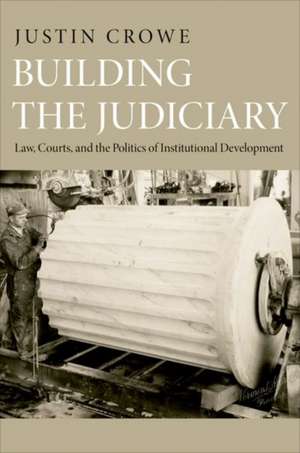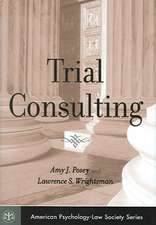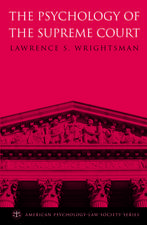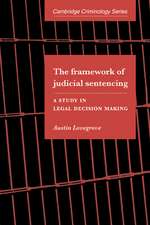Building the Judiciary – Law, Courts, and the Politics of Institutional Development
Autor Justin Croween Limba Engleză Paperback – 9 apr 2012
Arguing that judicial institution-building is fundamentally based on a series of contested questions regarding institutional design and delegation, Crowe develops a theory to explain why political actors seek to build the judiciary and the conditions under which they are successful. He both demonstrates how the motivations of institution-builders ranged from substantive policy to partisan and electoral politics to judicial performance, and details how reform was often provoked by substantial changes in the political universe or transformational entrepreneurship by political leaders. Embedding case studies of landmark institution-building episodes within a contextual understanding of each era under consideration, Crowe presents a historically rich narrative that offers analytically grounded explanations for why judicial institution-building was pursued, how it was accomplished, and what--in the broader scheme of American constitutional democracy--it achieved.
Preț: 329.06 lei
Nou
Puncte Express: 494
Preț estimativ în valută:
63.00€ • 64.63$ • 53.05£
63.00€ • 64.63$ • 53.05£
Carte tipărită la comandă
Livrare economică 26 februarie-12 martie
Preluare comenzi: 021 569.72.76
Specificații
ISBN-13: 9780691152936
ISBN-10: 0691152934
Pagini: 312
Ilustrații: 4 tables.
Dimensiuni: 154 x 234 x 19 mm
Greutate: 0.45 kg
Ediția:New.
Editura: Princeton University Press
Locul publicării:Princeton, United States
ISBN-10: 0691152934
Pagini: 312
Ilustrații: 4 tables.
Dimensiuni: 154 x 234 x 19 mm
Greutate: 0.45 kg
Ediția:New.
Editura: Princeton University Press
Locul publicării:Princeton, United States
Notă biografică
Descriere
How did the federal judiciary transcend early limitations to become a powerful institution of American governance? This book uncovers the causes and consequences of judicial institution-building in the United States from the commencement of the new government in 1789 through the close of the twentieth century.












